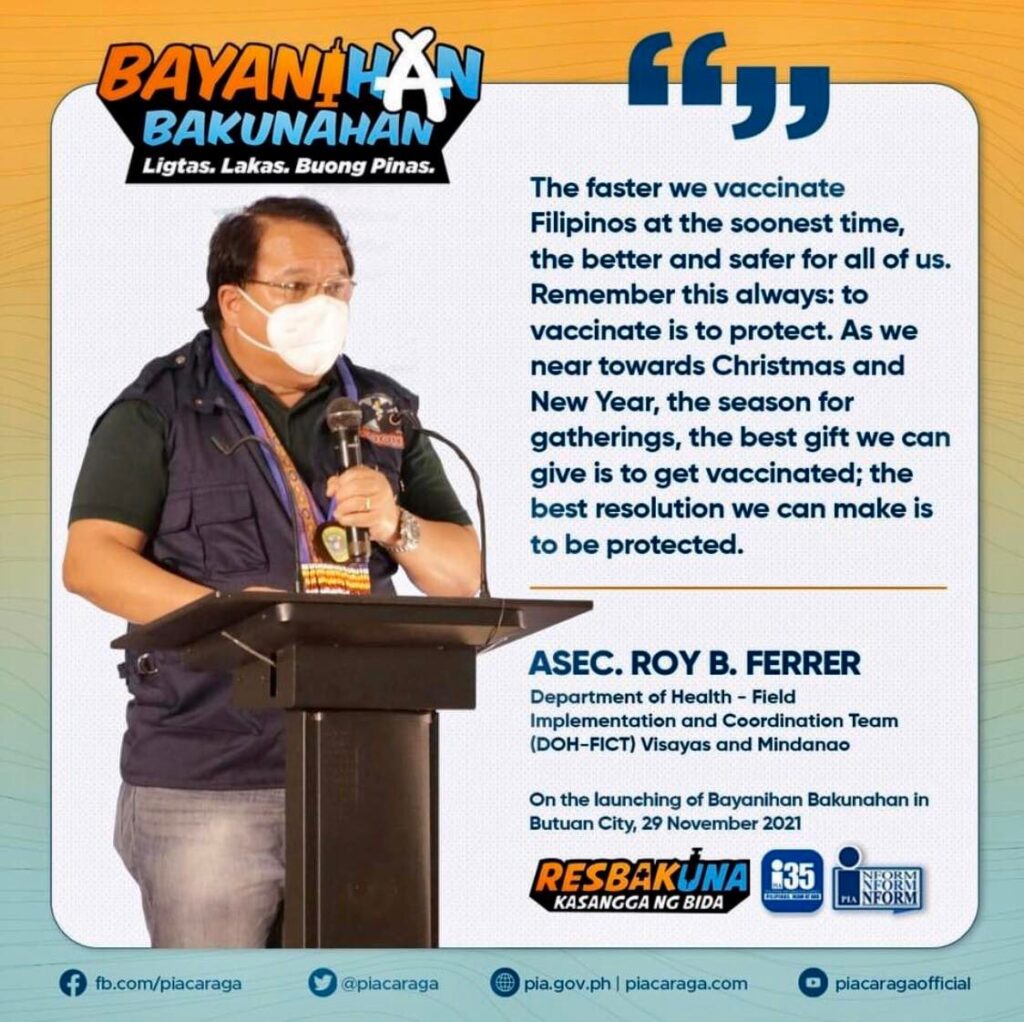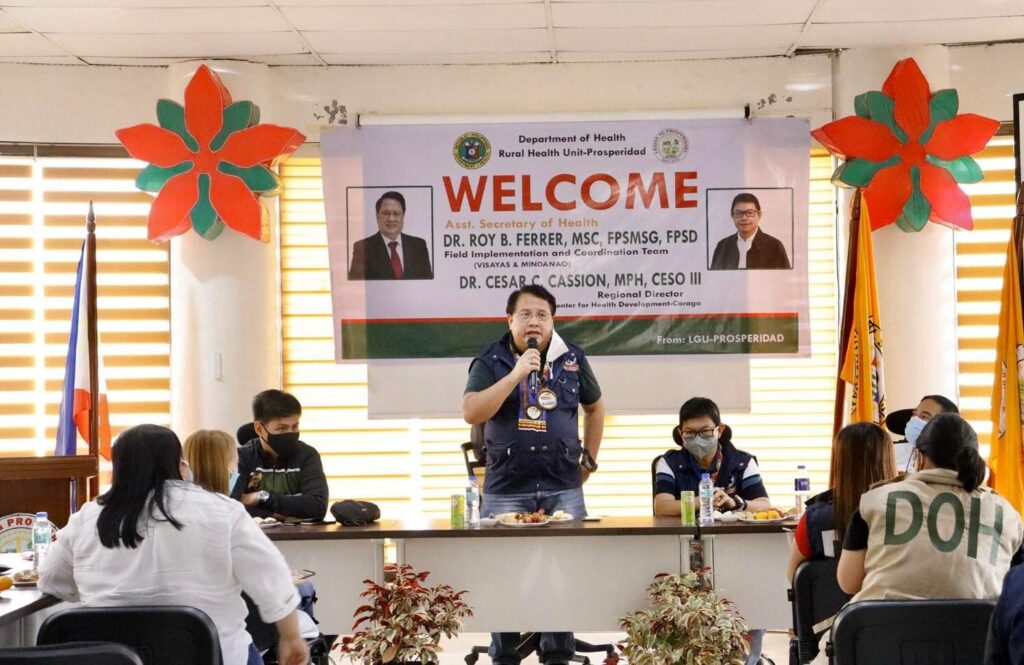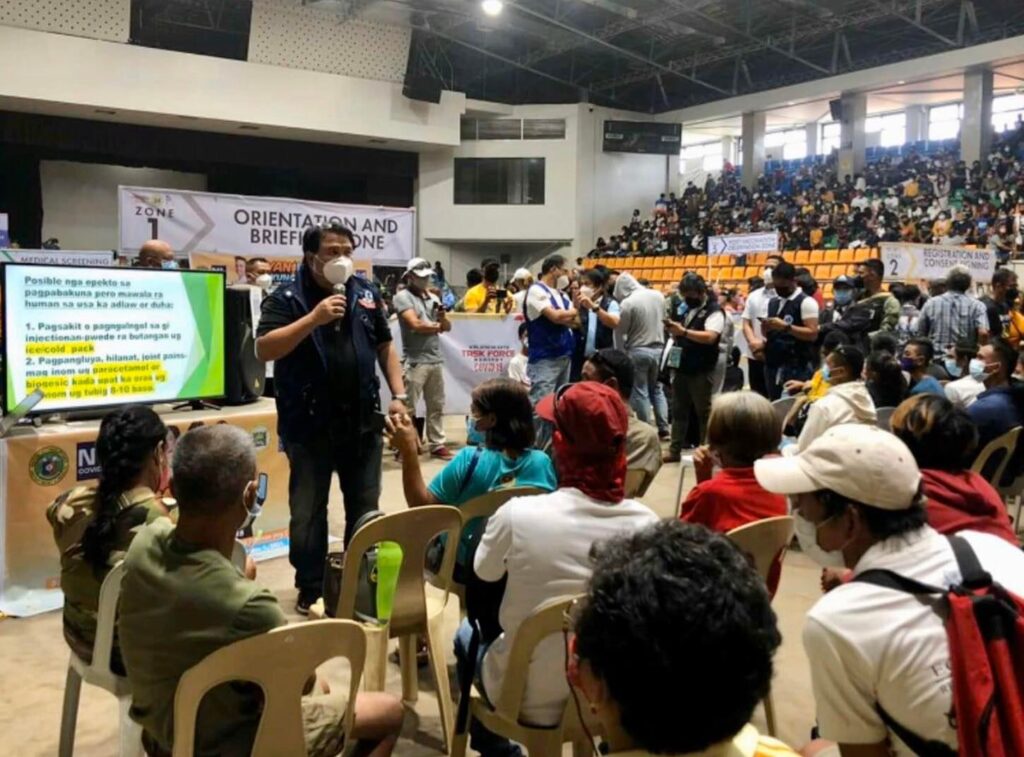Text by Henrylito D. Tacio
Photos courtesy of Dr. Roy B. Ferrer
Soon, it will be Christmas, the most anticipated festivity in the Philippines. Even in the midst of a pandemic, Filipinos are still celebrating it. After all, it is supposedly observing the birth of Jesus Christ, mankind’s savior.
One of the traditions that go along with Christmas is the gift. Jesus was God’s gift to mankind. As John 3:16 puts it: “For God so loved the world, that He gave His only begotten Son, that whosoever believeth in Him should not perish but have everlasting life.”
Since we are still in pandemic mode – in fact, another variant, Omicron, is soon to come, which we hope won’t happen – the best gift you can give to your loved ones are not material things but to be protected from severe acute respiratory syndrome coronavirus 2 (SARS-CoV-2), the virus that causes coronavirus disease 2019 (COVID-19).
“As we near towards Christmas and New Year, the season for gatherings, the best gift we can give to get vaccinated; the best resolution we can make is to be protected,” said Dr. Roy B. Ferrer, assistant secretary of the Department of Health (DOH) for field implementation and coordination team (Visayas and Mindanao).
Dr. Ferrer said those words during the National COVID-19 Vaccination Days from November 31 to December 1. Dubbed “Bayanihan, Bakunahan,” it was launched to vaccinate around 9 million individuals in 8,000 sites across 16 regional offices nationwide.
“The faster we vaccinate Filipinos at the earliest, the better and safer for all of us,” said Dr. Ferrer, who is from Davao City.
He also urged children (from 12 to 17 years old) to have themselves vaccinated against COVID-19.
“To vaccinate is to protect,” Dr. Ferrer pointed out. “As we pursue to protect the children, we are also protecting their loved ones. We assure everyone that vaccines are safe and effective.”
To be vaccinated is the only way out of the pandemic the world is now experiencing. That was what UN Secretary-General Antonio Guterres stressed in a meeting in New York of Foreign Ministers of the Group of 77 developing nations and China.
Guterres said that the UN stands behind the vaccination strategy set out by the World Health Organization (WHO), with the goal of getting vaccines into the arms of 40% of people in all countries by the end of this year, and 70% by the middle of 2022.
For its part, the Philippine government is committed to fully vaccinating at least 54 million people within this year and up to 70 million early next year to achieve population protection.
On its website, the health department explains how vaccines prevent diseases like COVID-19. “Vaccines mimic the virus that causes disease and triggers the body’s creation of antibodies,” it says. “These antibodies will provide protection once a person is infected with the actual disease-causing virus.”

Dr Ferrer 
Dr Ferrer with some DOH staff 
Dr Ferrer during a forum
Vaccines have helped prevent more diseases than all antibiotics put together. “Vaccines differ in their composition and how they trigger the immune response to create antibodies,” DOH says. “These antibodies protect the body from microorganisms and serve as protection once a person gets infected with disease.”
Vaccines can be inactivated, weakened, or killed copies of the whole or part of the virus or genetic products (like mRNA vaccines) that create protein copies without causing disease.
“Vaccines are one of our most important tools for preventing outbreaks and keeping the world safe,” Dr. Tedros Adhanom Ghebreyesus, WHO director-general, said in a statement.
But like all medicines, side effects can occur after getting a vaccine. “However, these (side effects) are usually very minor and of short duration,” the WHO says. “More serious side effects are possible, but extremely rare.”
As for the COVID-19 vaccines, the possible side effects include pain, redness, itchiness, or swelling at the injection site (which may last a few hours); fever; feeling of weakness or fatigue; headache; dizziness; diarrhea; or nausea. “Consult the nearest healthcare professional if you experience any of these,” the DOH urges.
Vaccines protect people throughout life and at different ages, from birth to childhood, as teenagers and into old age. “If we delay vaccination, we are at risk of getting seriously sick,” the WHO warned. “If we wait until we think we may be exposed to a serious illness – like during a disease outbreak – there may not be enough time for the vaccine to work and to receive all the recommended doses.”
Aside from being vaccinated, Dr. Ferrer also urged people to follow the recommended health protocols: keep a physical distance of at least 1 meter from others; wear a well-fitting mask; open windows to improve ventilation; avoid poorly ventilated or crowded spaces, and wash your hands always with water and soap or alcohol.

